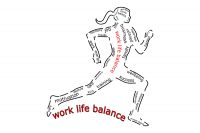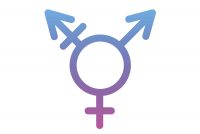Category: Talent
Employee feedback, compliance, government forms, leave policies, recruiting: the list of tasks that an HR professional have to perform is nearly endless. Just as important as any one task is how professionals put them all together into a united front. Welcome to the Strategic HR topic.
According to Entrepreneur, the modern-day worker who lacks a true work/life balance is less productive; is more likely to quit a job; loses out on important personal life experiences; and is at higher risk of becoming depressed or anxious or experiencing heart disease.
As Anne-Valérie Hueschen—Vice President of Corporate Affairs at Voxbone—recently discussed, having a diverse workforce creates smarter teams. Hueschen says, “Diverse workforces reflect more of the world as a whole, which encourages multiple solutions to problems and fosters new ideas.”
Written communication is essential in all business roles, but they’re particularly important for HR managers. As an HR manager, you often represent your company, and so it is vital that your written communication is up to scratch and ready to wow people both internally and externally.
Developing a culture of true innovation and creativity within an organization is no easy task. Even if a leader advocates for their employees to be creative and pursue new ideas, organizations rarely allocate time and resources for those employees to be creative without risking the time they need for standard operations. To truly explore what […]
Over the last few months, newly elected Congresswoman Alexandria Ocasio-Cortez has been pushing an agenda to save the planet. Dubbed the “Green New Deal,” this policy aims to drastically cut carbon emissions from industries like electricity generation to transportation to agriculture. Ocasio-Cortez says that this policy will help to create jobs and boost the economy. […]
In 2019 and beyond, learning and development (L&D) strategies shouldn’t just be implemented by corporations or enterprises alone. Why? Because L&D will be the most innovative department for any organization for the next decade or so, regardless of its shape or size.
According to research highlighted by Harvard Business Review, positive work cultures promote more productive, engaged, and happier employees. Also, according to one survey highlighted by Forbes, “corporate culture, however it is defined, makes a difference in companies’ performance and value.”
CareerBuilder recently revealed that modern-day workers have a difficult time unplugging from their devices and from work as a result. So, they are burned out, fatigued, stressed, and unhappy.
Research reveals that diverse workplaces experience many benefits. More inclusive and diverse workplaces:
Technology is enabling when we work, how we work, and where we work and as a result more employers are offering employees flexible work schedules and arrangements for talent retention, while recruiters are using flexible work arrangements for talent attraction.







